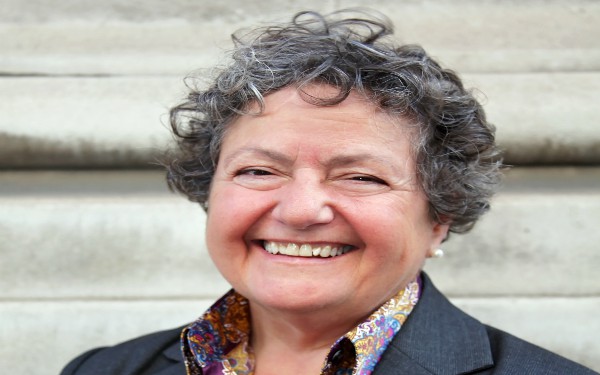
By Lyn Romeo,
There’s a line in health and social care secretary Matt Hancock’s recently launched prevention vision document which really stands out for me: “prevention is everyone’s business”.
In the arena of health and care, I find this to be a reassuring, practical and timely perspective, but I would suggest it’s been the practice of social workers for decades.
Taking a prevention approach is core to what we do. We work alongside individuals and families and listen empathically to their needs and concerns. In this way, we can really understand and respond to the warning signs of emotional and physical distress.
Where appropriate, we also make it the business of others with whom we work to find solutions; this could mean addressing issues such as housing, income and food security. Or it could involve helping people gain access to services and connecting them to community resources and support to reduce social isolation. This is the bread and butter of social work.
We are brought in to stop things getting worse, to help people make decisions that protect and promote their physical and mental health and help them lead the best possible lives. In turn, this eases demand on other parts of the health and care system. This includes working with the psychosocial impacts of ill-health and supporting people in their reablement and recovery journeys.
Welcome shift in emphasis
Minister for care Caroline Dinenage has spoken at length elsewhere about the importance of community health services and it’s a welcome shift in emphasis, because effective social work thrives in this space.
Good examples of this outreach can be found in the named social worker pilots, which saw social workers operating at the centre of a web of care drawing in voluntary, community and clinical support for people living with mental health issues, autism and learning disabilities.
It is well known of course that these groups are, for a variety of reasons, more prone to illness and more likely to present to A&E and other acute services.
If we want to make good on the prime minister’s Ageing Society Grand Challenge of an extra five years of healthy, happy, independent living by 2035, we must deliver for the most vulnerable in society.
In the pilot areas, named social workers, with their more intimate understanding of a person’s situation, guided or advised other services to intervene earlier and take preventative measures – and with the full involvement of the person needing support.
Across England, more and more local authorities are taking social work led practice approaches which focus on strengths based methodologies. This involves asking people what matters to them, what’s possible and what contributions and gifts they can utilise to make lasting changes that could improve their health and wellbeing.
Developing and sharing best practice
Another aspect of prevention under the spotlight is that of best practice, information sharing and quality research.
I’ve long championed the need for social work to develop a robust evidence base, because the more evidence you have, the more effective your practice. Ultimately, this is about giving people the best possible help and maximising opportunities to lead better lives.
For social workers and other professionals, having access to research and evidence is increasingly important to support decision-making and challenge ingrained thinking and assumptions.
That’s why I commissioned health and care research experts, the James Lind Alliance (JLA), to establish the priorities on which modern social work needs to focus. Their report is a world first for this kind of social work research, informed by the experiences of more than a thousand respondents who use services, their carers, and social workers.
The prevention agenda undoubtedly stands to benefit. If we believe advances in clinical analytics can improve health outcomes, then we must believe the same applies to social care research. The more we can understand how social work practice works most effectively for people with social care needs, the better we can serve prevention’s ultimate goal – safer, healthier, happier lives for everyone.
This blog entry was written by chief social worker for the Department of Health and Social Care, Lyn Romeo. Find her on Twitter @LynRomeo_CSW


 Family help: one local authority’s experience of the model
Family help: one local authority’s experience of the model  ‘I spent the first three months listening’: how supportive leadership can transform children’s services
‘I spent the first three months listening’: how supportive leadership can transform children’s services  How senior leaders in one authority maintain a culture of excellence
How senior leaders in one authority maintain a culture of excellence  How staff support ensures fantastic outcomes for children and families
How staff support ensures fantastic outcomes for children and families  Workforce Insights – showcasing a selection of the sector’s top recruiters
Workforce Insights – showcasing a selection of the sector’s top recruiters 

 Facebook
Facebook X
X LinkedIn
LinkedIn Instagram
Instagram
Everything you say is the complete opposite to how social works.. I wish someone would talk to me to find out how it really is how ones emotional and physical wellbeing is visually worsened yet what they are doing they continue making your disability so bad u can’t function daily when working with u could prevent all that and make u live with some degree of hope and trust.. Nothing is person centred and when u do get one who learns you and gains trust they are taken away.. Why in this day and age do I have no voice no choice
I find it worrying that Chief Social Worker who advises and speaks with Government has so little awareness of how it is on the ground in so many places with the need to be resource-led at all levels removing much of social workers’ ability to work in a preventive and person-centred way. It does all come down to money but even the fact that preventive care would save money is ignored as short termism prevails.